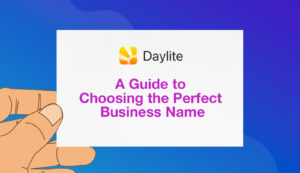Your freelance or startup business is growing and it’s time to find your first office space. Before jumping into looking at buildings, there are a few factors to consider and questions you need to answer. The first thing to consider is your budget and needs, then look into various options.
Important things to consider before looking for an office space
What is your budget?
To consider what options are best, you’ll first need to determine your budget. What are your current expenses? Consider all of the tiny details from internet, technology, staff, and your supplies. On top of that, include your own expenses. How much do you need to live? What are some possible fringe cases that could add to your expenses? How much are you going to need for marketing or advertising?
Once you have a list with totals of your expenses, figure out your estimated income to determine your cashflow. How much do you estimate to be making each month? Be sure to factor in slow periods such as over the holidays and worse case scenarios. It’s safest to shoot high with your expenses and estimate low on your income. After carefully comparing your income to your expenses, you should have a clear idea of the budget you’re working with.
What are your needs?
After you have a budget, write down your needs for the office space. Will you need parking space for yourself, you staff, and clients? Will you need a store-front window in a high traffic area to bring in new customers? Do you need to be located near a highway for easy delivery of large products or supplies?
What are the needs of your clients?
Beyond just your own needs, you need to also factor in the needs and demographics of your clients. Is this an office space that clients will be visiting often? How far are they willing to travel? Who is your target customer? Where do they hang out? Maybe they’re a corporate client and it makes most sense to be in a space around other corporate businesses. Or perhaps it makes most sense to be clustered with other small businesses that attract your ideal customer.
What are your plans for growth?
When looking into options for your office space, consider your growth plans. Do you need a small space that fits you and your team right now, or one large enough to grow into if you plan on expanding? Perhaps it’s a new venture and it’s difficult to gauge, in which case it would be wise to look for something short-term in the event that you outgrow the space. On the other hand, your business may be growing rapidly so you should consider a space that can accommodate your growing team and will be available for the next few years.
Options when looking for an office space

Home Business
A home office is the most cost effective option. It includes many tax benefits because you can claim various expenses for your business such as your internet, hydro, heating, etc. If you’re able to convert a spare room in your home or your garage into an office or studio space, this will save you plenty of money that you can invest into other areas of your business.
One thing to consider in this option is to make sure your area is zoned for commercial use. The zoning laws will depend on your area so you’ll want to do some research. Even if your area isn’t currently zoned for commercial use, you can apply to have your zone changed.
Temporary Rental Space
If a home office isn’t an option for you, but you don’t need an office space frequently enough to justify a monthly rent expenses, a temporary rental space is a great option. There are many Airbnb style websites that help you book conference rooms, offices, or studio spaces –whether you need it for an hour, a day, a week, or a few months. Some of these include Breather, OFIXU, PivotDesk, Copass, MeetingsBookers, and LiquidSpace.
Temporary rental spaces make it more affordable when you only need a space occasionally to meet clients, brainstorm with your team, or to collaborate with another business.
Shared office space
Finding a shared office space is great for startups that need to lease an office building or studio space, but have a tight budget to work with. By sharing an office space with another startup or small business, you can cut back on your costs. It’s also beneficial if you can find an office space to share with another small business that compliments your products or services. This way you’re helping each other out by promoting each other’s services.
For example, if you’re a photography studio you could benefit from sharing a space with an interior design studio. The design studio could hire you to photograph their work or recommend you to clients. You can return the favour by hiring the design studio to stage your shoots or recommend them to clients that mention wanting to do renovations or redecorating. You scratch their back, they scratch yours.
Leasing an office space
Whether you’re leasing a shared space or a private space for your business, there are pros and cons. The pros to leasing an office space are that all your payments are laid out for your taxes. You know how much your costs will be per month and can compare against your income to find a space within your budget. Leasing can also improve your credit rating and when you have a fixed lease, you don’t need to worry about the cost of maintenance or management for the property.
Another pro is that as a new entrepreneur, you may not be able to accurately forecast your rate of growth and cashflow. By leasing a space, it gives you an exit strategy in the event that you outgrow the space, or end up needing to downsize if you overestimated your forecasted income. You also don’t need to worry about selling the space before moving to another location.
The cons of leasing is that the amount of time you’re able to stay in the office space is determined by the lease and the property owner. You may find a space that’s perfect, but find that after your two year lease is up, the property owner does not want to renew your lease. The other downside is that your rent could be increased and may affect your cashflow.
Various types of leases
When looking to lease an office space, be aware that there are different types of leases. For example, a fixed lease means you pay a fixed amount in rent and the property owner pays all operating expenses. A net lease is where you would pay a portion of the expenses on top of your monthly rent. A net single lease is where you pay the rent plus certain defined expenses. A net-net lease means you pay the maintenance and operating expenses plus property taxes on top of your monthly rent.
When comparing options, be sure to factor in the cost of expenses when comparing prices. A fixed lease at a higher monthly amount may end up being more cost effective than a net-net lease with a low monthly rent but high maintenance and operating expenses.
Buying an office space
Buying an office space may not be the best idea for a startup. However, if you have adequate funds, a strong sense of the speed of growth of your business, and the market is right, there are pros to owning. If you own an office space you have the option to sublet the space when you’re not needing it, or you could rent out a portion of the space to offset your costs.
Buying an office space is an investment and depending on the market in your area, it may be worth it. When you own, you gain from the increase in property value, where as if you rent, you have to deal with an increased rent from leasing as the property value increases.
If you’re looking to buy an office, you could consider the option of purchasing an older home that’s been zoned for commercial use. This may be a more cost-effective option than purchasing a new office space and you could invest money into renovating the space which would benefit you if you needed to resell down the road.
In conclusion, there are many factors that need to be carefully considered when looking for a space. Do the necessary research to figure out a realistic budget along with the needs of yourself, your team, and your potential clients. There are many options out there, so stay motivated and be realistic about what is right for your business. On top, it doesn’t hurt to get out there and talk to other small business owners in your area to find out more about a space before leasing or buying.



